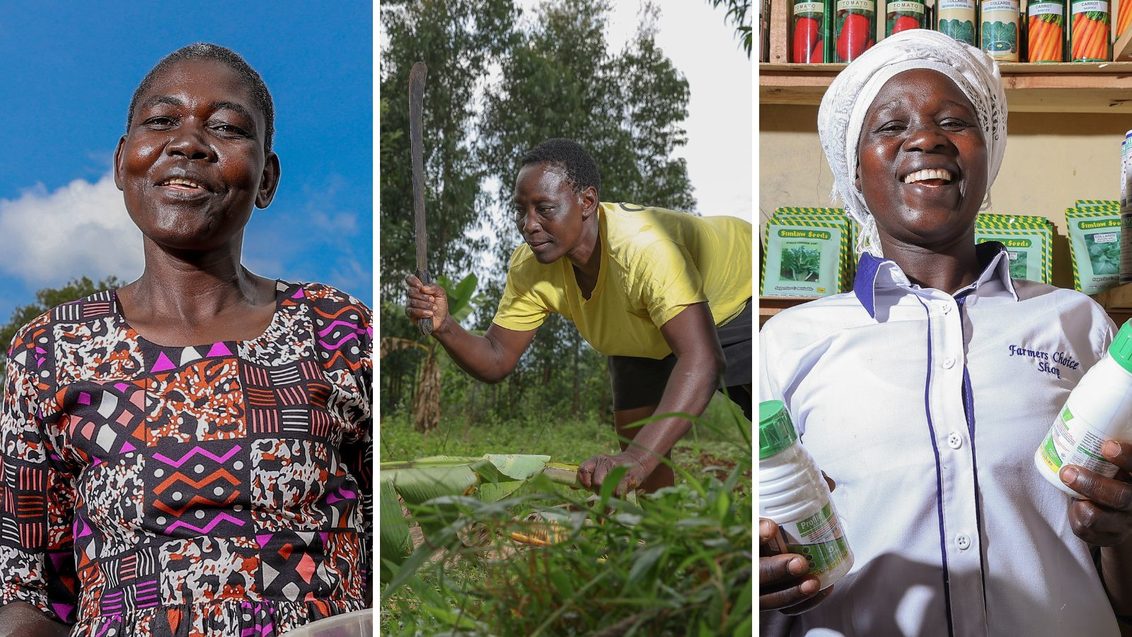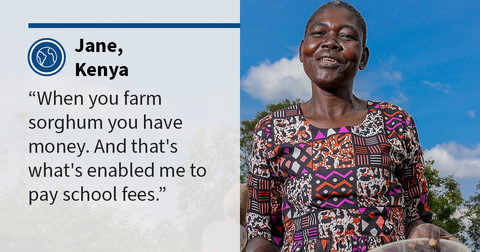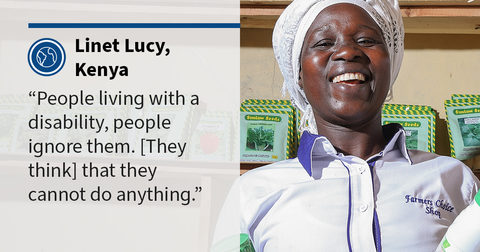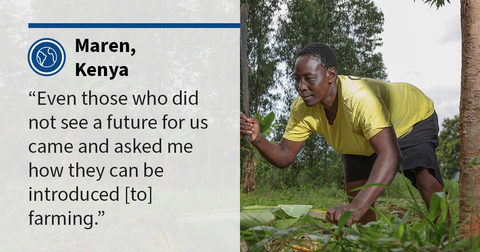International Day of Rural Women 2022: how we’re helping to transform the lives of women farmers

International Rural Women’s Day is an annual event dedicated to the millions of women living in rural areas. It celebrates the contributions – and achievements – of these women to food security.
To mark this, we are highlighting the stories of some of the women farmers we work with in rural western Kenya. These women are being economically empowered, and at the same time, are challenging negative attitudes which say that people with disabilities cannot be successful at farming.
Inclusive Futures’ work is supporting women farmers with and without disabilities to be part of the agricultural supply chain of East Africa Breweries Limited in Kenya.
Through introducing farmers to organise collectively through the Syngenta Foundation for Sustainable Agriculture hub model, we help them to access seeds, fertiliser, and provide them with increased power to negotiate better deals with suppliers.
Through working with organisations of people with disabilities and women-led organisations, we are working to ensure that income is channelled into the hands of women with disabilities.
Funded by USAID, the Global Labor Program builds on pilot work previously funded by UK Aid, which gave farmers with disabilities training and resources to grow sorghum, which is essential to brew Senator keg beer, more efficiently. The programme has been scaled up to work with hundreds more farmers with and without disabilities. It is also supporting women entrepreneurs to become part of Coca Cola Beverages Africa’s retailer network in Kenya.
Why is it important to focus on the inclusion of women with disabilities?
- Many of the barriers and vulnerabilities that people with disabilities face are exacerbated for women with disabilities
- Women with disabilities are more likely to be poor, unemployed, live in food-insecure households and have lower levels of education than men with disabilities.
- Our research shows that women with disabilities who are widowed, are more likely experience stigma compared to people with disabilities who are married or living together.
- In rural areas, usually women do not own land and have no rights to property. This limits their access to credit and other services, and means they are unlikely to meet the conditions required to enter contract farming.
Learn about the farmers’ stories, the challenges they face, and the successes they are having through supplying sorghum



